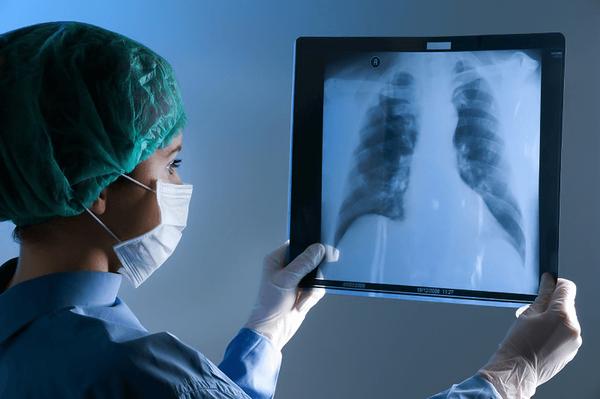Healthcare with Confidence
As of 2025, significant advancements have emerged in the diagnosis and treatment of lung cancer in Israel, offering renewed hope to international patients.
Lung Cancer Treatment in 2025: Innovations, Breakthroughs, and Hope in Israel
Lung cancer remains one of the most challenging and deadliest forms of cancer worldwide. However, this year has seen remarkable progress in immunotherapy, targeted therapies, and personalized medicine, along with revolutionary technologies that are transforming how lung cancer is diagnosed and treated.
Best Israeli Doctors for Lung Cancer in Israel
Israel is renowned for its advanced medical infrastructure and distinguished specialists in the field of oncology, particularly in lung cancer treatment. Here are some of the leading doctors and institutions specializing in lung cancer care in Israel in 2025.
It is recommended to be treated by an experienced lung cancer focused specialists. This team includes: lung cancer oncologist, surgeon, radiologist, pathologists, radiation oncologists.

We collaborate with such worldwide known lung cancer specialists as Dr. Damien Urban, Dr. Maya Gottfried, Prof. Nir Peled, Prof. Yair Bar and many others.
If you want to get a Second Opinion or Consultation Online of a leading Israeli lung cancer specialist, please provide your medical summary, including treatments done and results, medical files, blood tests, pathology reports, PET CT, MRI reports in English and CDs. We will promptly organize consultation.
Choose your doctor and contact us: ⇒ 5 Best Doctors for Lung Cancer in Israel in 2025
Based on the results of the consultation, we will provide you with a doctor’s report with treatment recommendations.
Advanced treatment of Any Type, Stage and Differentiation:
- Non-Small Cell Lung Cancer (NSCLC) – adenocarcinoma, squamous cell carcinoma, large cell carcinoma
- Small Cell Lung Cancer (SCLC) – oat cell cancer, combined small cell carcinoma
- Mesothelioma
- Lung Carcinoid Tumor
- Sarcomatoid Carcinoma
Conventional treatment methods for lung cancer are surgery, chemotherapy, targeted or biological therapy, immunotherapy, radiation therapy.
Precise and Minimally Invasive Surgery for Lung Cancer Treatment in Israel

- Video-Assisted Thoracoscopic Surgery (VATS): A minimally invasive surgery, when Israeli surgeon is using a tiny camera and instruments through small incisions. Primarily for early-stage NSCLC. Benefits: Less pain, quicker recovery, and reduced hospital stay.
- Robotic-Assisted Thoracic Surgery (RATS): A robotic system controlled by a surgeon to remove lung tissue. Advantages: Greater precision, less trauma, and faster recovery.
- Robotic Bronchoscopic Surgery: Enhanced precision in tumor removal through the bronchi.
- Intraoperative Imaging Systems: Real-time imaging to ensure complete tumor excision.
- Hybrid Techniques: Combining surgery with real-time radiation therapy to eliminate residual cancer cells.
- Lobectomy. Removal of an entire lobe of the lung
- Pneumonectomy. Removal of an entire lung.
- Segmentectomy (Segmental Resection). Removal of a lung segment (smaller than a lobe).
- Wedge Resection. Removal of a small, wedge-shaped piece of lung tissue that contains the tumor.
- Sleeve Resection. Removal of a tumor along with a portion of the bronchus, followed by reconnection of the remaining ends.
Innovative Radiation Therapy
- External beam radiation therapy (EBRT). When the treatment is given to cure the disease, or as adjuvant treatment after surgery, it will most often be given for 4-7 weeks. If the treatment is given as palliative care, to relieve symptoms and improve quality of life, it is given over a shorter period of time, from one day to about two weeks, depending on the site being irradiated and your overall medical condition.
- Stereotactic Body Radiation Therapy (SBRT). Also called Stereotactic Body Ablative Radiation Therapy (SABR), is an innovative treatment that uses scans and sophisticated planning to precisely target radiation to treat small tumors. This advanced type of radiation can be used in NSCLC lung tumors when the tumor is small, as an alternative to surgery in selected cases. The duration of treatment is usually shorter and consists of five to six treatment sessions.
- Intensity modulated radiation therapy (IMRT). A three-dimensional treatment that allows radiation to be delivered to a tumor that surrounds or is adjacent to a vital organ while minimizing radiation to healthy tissue.
- Volumetric modulated arc therapy (VMAT) – A technique similar to IMRT. Radiation beams of varying intensities are aimed at the tumor and rotate in arcs around the patient. The result is that the tumor is attacked while minimizing radiation to healthy tissue, and treatment time is reduced.
- Internal Radiation – Brachytherapy. Treatment given when a tumor blocks one of the airways and causes the lung to collapse. This is a simple way to open the airway. The treatment is usually a one-time treatment. During the treatment, a thin tube (catheter) will be temporarily inserted into the trachea, with the help of a bronchoscope. A radioactive radiation source will be connected to the tube and will reach the tumor. In this way, radiation is given directly to the tumor, with minimal effect on healthy tissue. The source remains in place for a few minutes. Then the radiation source and catheter are removed. If necessary, the treatment can be repeated two or three times, each case on its own.
Innovative Treatments for Lung Cancer in Israel 2025

One of the most promising advancements in 2025 is the development of in-vivo T cell therapies from Israeli doctors. Unlike traditional CAR-T treatments, which require extracting and modifying a patient’s T cells outside the body, in-vivo CAR-T therapy works through simple injections. This approach allows the immune system to directly target and destroy cancer cells without the need for complex cell processing.
Antibody-drug conjugates (ADCs) have also emerged as a powerful tool against lung cancer. AbbVie’s Teliso-V is a notable example, targeting tumor cells with highly potent agents while minimizing damage to healthy tissue. This precision reduces side effects and enhances treatment effectiveness, marking a significant leap forward in oncology care.
The success of mRNA technology in COVID-19 vaccines has paved the way for its application in cancer treatment. Moderna’s mRNA-4359 is showing promising results in clinical trials, effectively training the immune system to recognize and attack lung cancer cells. This vaccine has demonstrated tumor suppression in several patients with advanced-stage lung cancer, offering hope for a more proactive and less invasive treatment option.
In 2025, the use of artificial intelligence (AI) in lung cancer treatment has expanded beyond diagnostics. AI tools like eyonis™ LCS, developed by Median Technologies, now aid radiologists in early detection by analyzing low-dose CT scans with remarkable accuracy. These tools not only speed up diagnosis but also help identify patients who are most likely to benefit from specific treatments, supporting personalized medicine approaches.
FDA approved medications for lung cancer treatment in Israel

The most common drugs for treating lung cancer usually include a combination of Cisplatin and Carboplatin (Paraplatin®)* in addition to one of the following drugs: Etoposide (Etoposide®)*, Gemcitabine (Gemzar®)*, Vinorelbine (Navelbine®)*, Paclitaxel (Taxol®)*, Albumin-bound Paclitaxel (Abraxane®)*, Docetaxel (Taxotere®)*, Pemetrexed (Alimta®)*, Toptecan (Hycamtin®)*.
Biological therapy (target therapy)
Most often, targeted therapies are intended for the treatment of advanced NSCLC lung cancer because this therapy works against specific mutations in cells, such as EGFR, ALK, BRAF, ROS1, RET, NTRK, HER2, KRAS. For these mutations treatment targeted medicines are used by Israeli doctors: Osimertinib (Tagrisso®)*, Erlotinib (Tarceva®)*, Gefitinib (Iressa®)*, Afatinib (Giotrif®)*, Lorlatinib (Lorviqua®)* and many others.
⇒ More about target therapy drugs for lung cancer in Israel
Immunotherapy
Immunotherapy drugs whose active ingredient is a genetically engineered monoclonal antibody that inhibits PD-L1. The drugs may be given in some cases with or after chemotherapy: Atezolizumab (Tecentriq®)*, Durvalumab (Imfinzi®)*, Nivolumab (Opdivo®)*, Pembrolizumab (Keytruda®)*
CTLA-4 inhibitor drugs are drugs which block CTLA-4, a protein found on T cells, thereby increasing the immune system’s response. The combination of drugs Ipilimumab (Yervoy®)* Nivolumab (Opdivo) are usually given in this case.
⇒ More about immunotherapy drugs for lung cancer treatment in Israel
In 2022, Shaare Zedek Medical Center in Jerusalem initiated the development of I3LUNG, an artificial intelligence-based tool designed to predict the effects of immunotherapy on lung cancer patients. This system analyzes a comprehensive range of patient data, including clinical history and genetic information, to tailor personalized treatment plans, thereby optimizing therapeutic efficacy and minimizing adverse effects.
In 2023, Hadassah-University Medical Center in Jerusalem, in collaboration with Roche-Israel, introduced genomic profiling for cancer patients. This initiative enables precise, personalized cancer care by analyzing the molecular characteristics of tumors, allowing for targeted treatment strategies.
Clinical Trials and Research Achievements
Researchers at the Weizmann Institute of Science have identified a biomarker that could lead to relapse-free treatment for a subset of lung cancer patients. Their studies demonstrated that targeting specific mutations with antibody-based drugs resulted in tumor regression without relapse in mouse models, offering promising avenues for future human clinical trials.
These advancements underscore Israel’s commitment to integrating cutting-edge technology and research in the fight against lung cancer, offering hope for improved patient outcomes and setting new standards in personalized oncology care.
Lung cancer research has never been more dynamic, and 2025 marks a turning point with new therapies reaching late-stage trials and getting approvals worldwide. Innovations in liquid biopsy and genomic profiling are helping doctors detect cancer at earlier stages and tailor therapies to individual genetic profiles. These advances contribute to more precise and effective treatments while minimizing side effects.
In addition to targeted therapies and immunotherapies, there is a growing focus on combination therapies that integrate multiple treatment modalities. These combinations not only improve effectiveness but also help prevent resistance to a single form of treatment, a common problem in oncology.
⇒ Oncotests for Lung Cancer Personalized Treatment
As we progress through 2025, lung cancer treatment continues to evolve at a rapid pace. Innovations like in-vivo CAR-T therapy, mRNA vaccines, and AI-driven diagnostics are changing the landscape of cancer care. With promising results from clinical trials and ongoing research, patients have more hope than ever before. The future of lung cancer treatment is undeniably bright, and the medical community remains committed to eradicating this devastating disease.
Israel Lung Cancer Clinical Trials in 2025
According to the Israel Cancer Association (cancer.org.il/clinical-researches)
- Chemotherapy with and without zipleratinib for patients with EGFR-positive advanced NSCLC (NCT05973773)
- A study of traltemab alone or with durvalumab for advanced SCLC after platinum, etoposide, and durvalumab (NCT06211036)
- Lutium-177 conjugated to DOTA-TATE in combination with carboplatin, etoposide, and atezolizumab for newly diagnosed advanced SCLC (NCT05142696)
- Amivantamab in patients with metastatic solid tumors or advanced stage NSCLC with an EGFR mutation (NCT05498428)
- Lutium-177 conjugated to NNS309 in patients with pancreatic cancer, lung cancer, and Breast and Colorectal Cancer (NCT06562192)
- Trastuzumab druxecan (T-DXd) and immunotherapy, with and without chemotherapy, for first-line treatment of HER2-positive NSCLC (NCT04686305)
- Adaggressive in combination with pembrolizumab versus pembrolizumab plus chemotherapy in patients with advanced non-small cell lung cancer with a KRAS G12C mutation NCT04613596
- A study of BAY 2927088 compared with standard of care in participants with advanced HER2-positive NSCLC Protocol NCT06452277
- Traltamab in subjects with limited-stage small cell lung cancer (LS-SCLC) whose disease did not progress after combination chemotherapy and radiation (DeLLphi-306) (NCT06117774)
- Durvalumab (Imfinzi) after stereotactic radiotherapy (SBRT) for stage I/II, unresectable, node-negative NSCLC (PACIFIC-4 study)
- Targeted therapies for advanced/metastatic non-small cell lung cancer (NSCLC) with blood-detectable and treatable mutations (B-FAST study)
- Study to evaluate SGN-B6A versus docetaxel in previously treated non-small cell lung cancer patients (NCT06012435)
- Study of zipleratinib with and without chemotherapy in patients with EGFR-positive NSCLC (NCT05973773)
- Study of ABBV-706 alone or in combination therapy in adult subjects with advanced solid tumors (NCT05599984)
- Lorbinectadine with or without irinotecan versus topotecan or irinotecan in patients with metastatic small cell lung cancer (SCLC) (NCT05153239)
- A study to evaluate the safety and efficacy of fecal transplantation in combination with nivolumab in patients with MSI-high/dMMR NSCLC who have failed immunotherapy (NCT04521075)
- A first-in-human phase I study to evaluate the safety and efficacy of ABBV-637 as a single agent or with docetaxel in subjects with NSCLC lung cancer
- SAR408701 versus docetaxel for CEACAM5-positive non-squamous NSCLC after prior therapy (CARMEN-LC03 / EFC15858 study)
- A study of semiflimab with and without fienlimab for the first-line treatment of patients with advanced NSCLC When at least 50% of tumors express PD-L1 Number: NCT05785767
- Combination immunotherapy for metastatic non-small cell lung cancer (MORPHEUS-LUNG / BO39610)
- A multicenter, open-label, first-in-human phase I study of ABBV-CLS-484 alone and in combination in subjects with non-small cell lung cancer (NSCLC)
- CM24 in combination with nivolumab in patients with non-small cell lung cancer – NSCLC
- A study investigating new therapies for metastatic non-small cell lung cancer (VELOCITY-Lung)
- MRTX849 monotherapy and in combination with pembrolizumab in patients with advanced NSCLC with a KRAS G12C mutation
Subolitinib with osimertinib versus chemotherapy in participants with locally advanced or metastatic NSCLC with overexpression and/or overexpression of a KRAS G12C mutation EGFR in the MET gene, whose disease progressed during treatment with osimertinib (SAFFRON) - Radiotherapy in combination with Tremelimumab and Durvalumab (MEDI4736) in NSCLC patients after immunotherapy (CORAL-Lung)
MK-1084 as monotherapy and in combination with pembrolizumab, in subjects with advanced-stage NSCLC with a KRASG12C mutation (MK1084-001), NCT05067283 - Phase I dose-escalation study of the preliminary antitumor activity of RO7247669, a PD1-LAG3 antibody, in patients with advanced and/or metastatic NSCLC (NP41300)
- Study in NSCLC patients with an EGFR mutation to compare the efficacy of chemotherapy alone versus chemotherapy in combination with amivantumab and lazertinib (NCT04988295, 61186372NSC3002)
- Evaluation of the safety, pharmacokinetics, and efficacy of ABBV-400 in adult subjects with advanced solid tumors
- A study of MK-2870 versus chemotherapy in previously treated advanced or metastatic NSCLC with EGFR mutations or other genomic alterations (NCT06074588)
- A study of ABBV-514 as monotherapy and in combination with pembrolizumab or budigalimab for the treatment of non-small cell lung cancer (NSCLC)
- A study of atezolizumab (Ticentric) and tirigolumab versus dorvalumab (Imfinzi) in patients with unresectable, locally advanced stage III NSCLC whose disease has not progressed after platinum-based chemotherapy plus radiation therapy (Study SKYSCRAPER-03)
- MK-4464 as a single agent and in combination with pembrolizumab in patients with advanced/metastatic non-small cell lung cancer (NSCLC) (MK4464-001), NCT05514444
- Combination therapy in previously untreated, locally advanced stage 3 NSCLC patients – vibostolimab with pembrolizumab and chemoradiotherapy and MK-7684A
- Profile of anticancer response in oncology patients receiving immunotherapy and/or chemotherapy to establish a profile to predict response to these treatments (NSCLC – PROPHETIC study / OH-HRPP-001)
- Phase I study of JNJ-78306358, a bidirectional antibody targeting HLA-G T cells in advanced solid tumors (Lung CR109028 / 2021-001646-35)
- Phase Ib/II study To evaluate the efficacy and safety of pembrolizumab with investigational agents in participants with advanced, anti-PD-1/PD-L1-resistant SCLC requiring second-line therapy (KEYNOTE-B98)
- Telisotuzumab vedotin for previously treated c-MET-positive non-small cell lung cancer (NSCLC) (Study M14-239)
- BMS-986466 in combination with adrenoceptor agonist, with or without cetuximab, in participants with non-small cell lung cancer (NSCLC) with the KRAS G12C mutation (study NCT06024174)
- ABBV-155 alone and in combination with a taxane for relapsed and/or refractory solid tumors (Phase I Lung Cancer Study – M16-573).
- Phase III Study of Pembrolizumab and Olaparib, with and without Chemotherapy and Radiation, in Patients with Localized Small Cell Lung Cancer (LS-SCLC) (MK 7339-013/KEYLYNK-013)
- Copetuzumab felidotin (ABBV-647) for PTK7-expressing Recurrent Non-Small Cell Lung Cancer – Phase 1B Study (Study M19-611 2019-003472-39 )
- Study of Radiotherapy in Combination with Tremelimumab and Durvalumab in Patients with Advanced or Metastatic NSCLC Who Have Progressed on a First-Line Immunotherapy Regime (MEDI4736)
- Study of GDC-6036 in Combination with Other Therapies for Patients with Previously Untreated Advanced or Metastatic NSCLC with a KRAS G12C Mutation (NCT05789082)
- Poziotinib for locally advanced/metastatic non-small cell lung cancer (NSCLC) with an EGFR or HER2 exon 20 insertion mutation (ZENITH20 / SPI-POZ-202 study)
- A phase II study to evaluate the safety and efficacy of tosmitumab revetensin in combination with pembrolizumab, with or without chemotherapy, and with or without pemetrexed in patients with CEACAM5-positive NSQ NSCLC
- Zipalertinib and chemotherapy versus chemotherapy alone in patients with EGFR-mutated NSCLC lung cancer ID: NCT05973773
- Pembrolizumab (MK-3475) in combination with sacituzumab govitecan versus MK-3475 monotherapy as first-line treatment in participants with metastatic NSCLC lung cancer expressing PD-L1 of at least 50% (KEYNOTE D)
- An observational study to evaluate the outcome of patients with ALK-mutated NSCLC treated with alectinib
- Talisotuzumab and dotin ABBV399 versus docetaxel in patients with previously treated locally advanced or metastatic non-small cell and non-squamous cell lung cancer with cMET overexpression, wildtype EGFR
- Combination of durablumab (MEDI4736) immunotherapy with chemotherapy in patients with metastatic LCNEC (ESR-20-20907; NCT05262985)
- A phase II umbrella study of alternating treatment arms of investigational agents in combination with pembrolizumab (Keytruda) alone, or with pembrolizumab and chemotherapy, in patients with advanced NSCLC (Study MK3475-U01).
- Preoperative osimertinib (Tagrisso) alone or in combination with chemotherapy, versus standard chemotherapy alone, for surgically resectable EGFR mutation-positive non-small cell lung cancer (NeoADAURA / D516AC00 study)
- A study of BMC12 in combination with nivolumab in patients with EGFR/ALK-mutated NSCLC
- LOXO-292 for advanced solid tumors, RET fusion-positive solid tumors, medullary thyroid cancer, and other tumors with RET activation (non-small cell lung cancer) (LIBRETTO-001 study)
- MK-7684A in combination with chemotherapy versus pembrolizumab in combination with chemotherapy, as first-line treatment for participants with metastatic NSCLC (NCT05226598)
- MK-7684A chemotherapy or with atezolizumab as first-line treatment for advanced-stage SCLC (NCT05224141)
- A Phase II study to evaluate the efficacy and safety of pembrolizumab in combination with investigational agents and etoposide and cisplatin or carboplatin as first-line treatment for patients with advanced-stage small cell lung cancer (KEYNOTE-B99)
- First-line treatment with traltemab in combination with carboplatin, etoposide, and a PDL1 inhibitor in patients with advanced-stage small cell lung cancer (SCLC) – NCT05361395
- A Phase I study of ABBV-927 in combination with ABBV-368, bodiglimab (ABBV-181), and/or chemotherapy for patients with locally advanced or metastatic solid tumors (M19-037 / 2019-000478-45 – NSCLC)
- A first-line study in children Human Safety Study of GEN1046 in Non-small Cell Carcinoma (NSCLC) (Study GCT1046-01)
- A Study to Compare the Efficacy of TAK-788 as First-Line Treatment Vs. Platinum-Based Chemotherapy in Patients with EGFR Mutated NSCLC
- Multi-Arm Treatment for Metastatic NSCLC that Progressed on Anti-PD-1/PD-L1-Including Therapy (HUDSON Study / 138050 / D6185C00001)
- ABBV-CLS-579, Alone and in Combination with an Anti-PD-1 Agent, in Subjects with NSCLC Lung Cancer
- The Bioavailability, Bioequivalence, Tolerability, and Antitumor Activity of Combination Therapy with Selinexor (Expobio) – (NSCLC) Phase II/I Study (SPRINT Study – KCP-330-027 – XPORT-STP-027)



